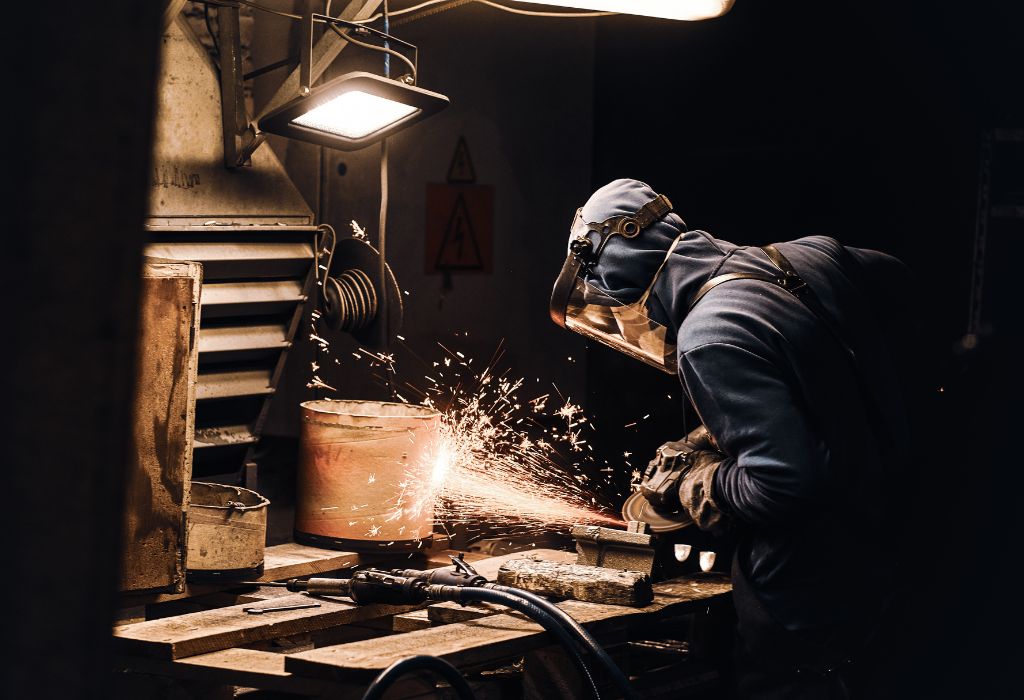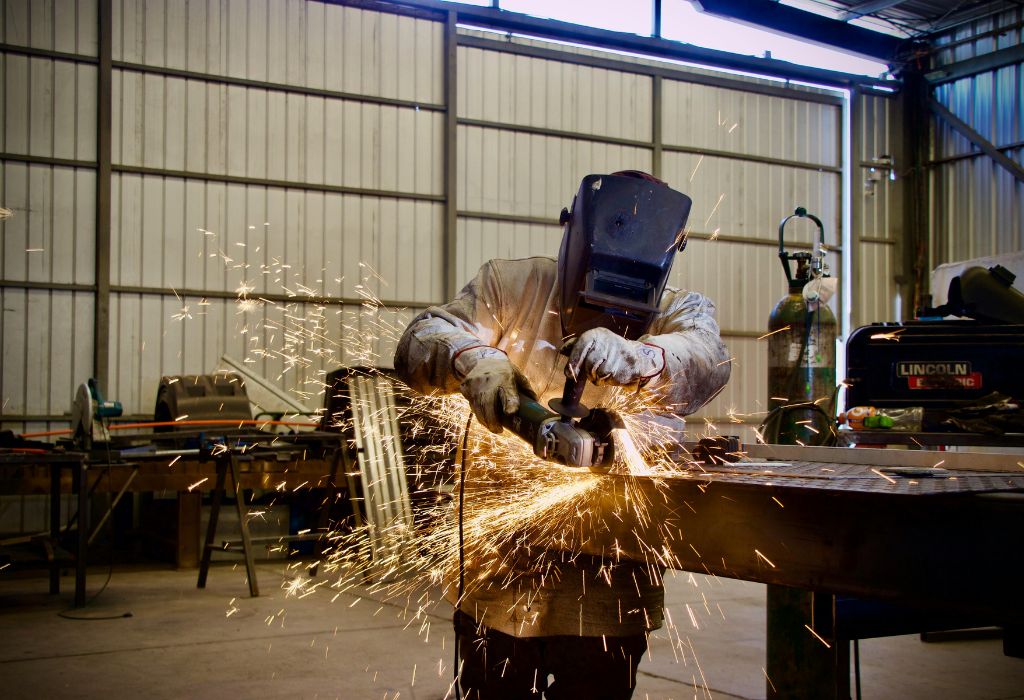A young worker steps into a welding shop and sees sparks lighting up the room. The thought immediately comes: what do you need to be a welder and build a career in this skilled trade.
Welding is one of the most essential jobs in construction, manufacturing, and repair industries. From bridges to pipelines, almost every major structure relies on welders.
The trade demands a unique blend of technical skill, safety awareness, and the right tools. Without these, the risks are high, but with proper preparation, the opportunities are even greater.
The U.S. Bureau of Labor Statistics projects more than 42,000 welding job openings annually through 2032, showing strong demand across industries (BLS).
For anyone interested in hands-on work, welding offers stability and growth.
Globally, the welding market is expected to surpass $28 billion by 2028, fueled by infrastructure projects, renewable energy, and skilled labor shortages (Fortune Business Insights).
These numbers prove welding is a career with global opportunities.
Beginners often wonder if they need a college degree to enter the field. The truth is welding is more about training, certifications, and practice than formal education.
A high school diploma, vocational school, or apprenticeship can provide the foundation. Beyond that, hands-on experience builds the precision and confidence required for the job.
Essential equipment includes a reliable welding machine, electrodes, safety gear, and protective clothing.
Just as important are soft skills like problem-solving and attention to detail.
This guide breaks down the education, tools, certifications, and career paths needed to become a welder.
By the end, you will know exactly what it takes to join this essential and rewarding profession.
What Do You Need to Be a Welder?
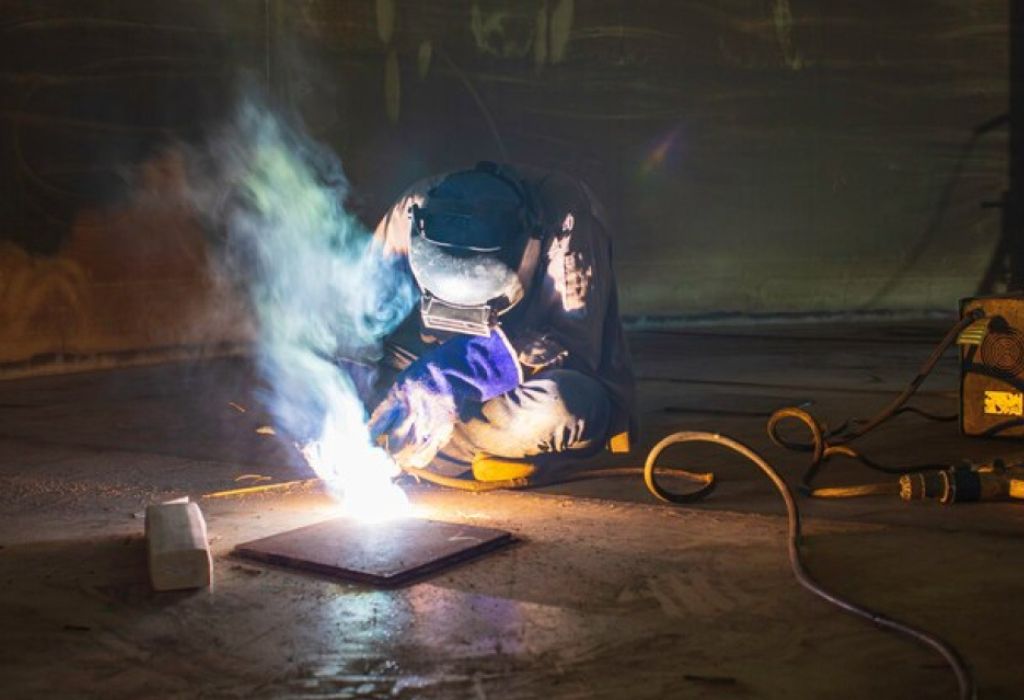
Becoming a welder requires education, practical training, certifications, and the right safety gear. It is a profession that combines technical knowledge with physical skill.
Unlike some trades, welding emphasizes hands-on learning. Employers value experience and certifications over degrees.
What do you need to be a welder?
Training, safety gear, and proper tools.
Is formal education required?
No, but vocational training helps.
Do certifications matter?
Yes, for career advancement.
Is welding experience important?
Yes, hands-on practice is essential.
Education and Training Requirements
Most welders begin with a high school diploma or equivalent. Subjects like math, physics, and technical drawing are especially useful.
Vocational or technical schools offer welding programs that cover different processes such as MIG, TIG, and Stick welding. Apprenticeships provide paid learning opportunities where students gain hands-on experience under expert supervision.
Specialized welding schools offer advanced courses. These may prepare students for high-paying roles in industries like aerospace, oil and gas, or underwater welding.
Do you need a degree for welding?
No, but training programs are valuable.
Are apprenticeships useful?
Yes, they provide real-world skills.
Can you self-learn welding?
Yes, but professional training is safer.
Do employers require formal training?
Yes, for many professional jobs.
Essential Welding Skills
Welding requires strong hand-eye coordination to achieve clean, accurate welds. Attention to detail ensures safety and quality in every project.
Mathematical ability helps in calculating dimensions, reading blueprints, and working with measurements. Understanding different metals and welding techniques is essential for adapting to different jobs.
Physical strength and stamina are also important. Many welding jobs involve lifting heavy materials and working in challenging environments.
Do welders need math skills?
Yes, for measurements and calculations.
Is steady hand control important?
Yes, for precision welding.
Do welders read blueprints?
Yes, to follow job specifications.
Is physical strength needed?
Yes, welding is physically demanding.
Welding Certifications and Licenses
Certifications demonstrate skill and professionalism. The American Welding Society (AWS) offers widely recognized certifications that employers value.
ASME certifications are required for specialized fields like pressure vessel and pipeline welding. Other industries, such as aerospace and underwater welding, require additional qualifications.
Licensing varies by state or country. Some regions require welders to pass tests before working on public infrastructure projects.
Do welders need certification?
Yes, for most professional roles.
What is AWS certification?
A respected welding qualification.
Are certifications industry-specific?
Yes, some focus on specialized fields.
Is licensing required everywhere?
No, it varies by location.
Tools and Equipment Needed for Welding
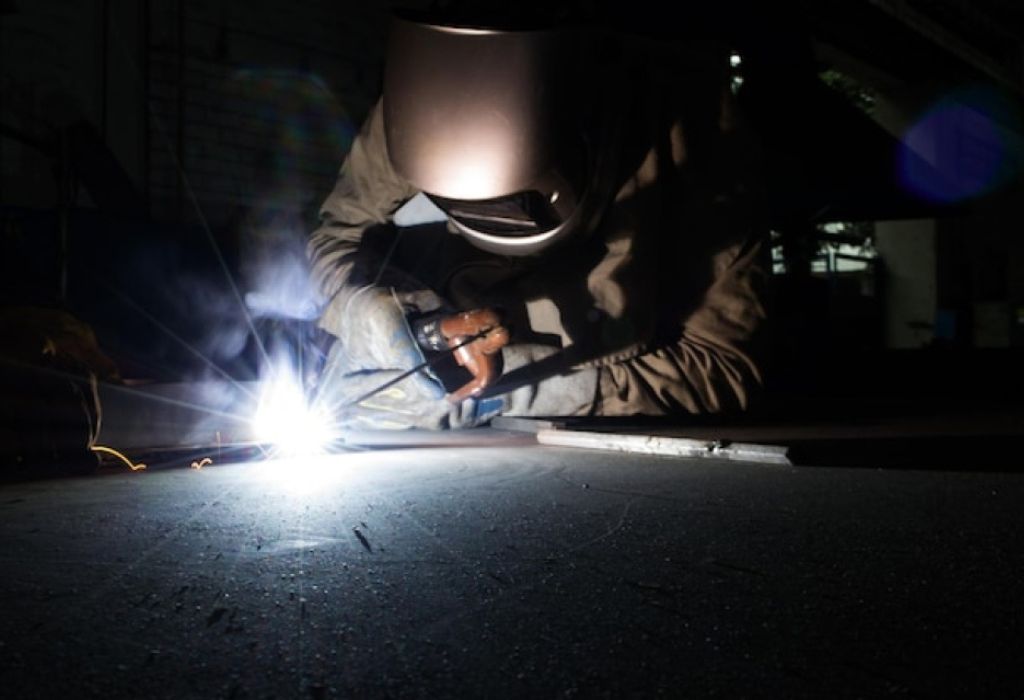
A welder’s toolbox starts with a reliable welding machine, whether MIG, TIG, Stick, or Flux-Cored. Each machine suits different jobs and materials.
Consumables such as electrodes and filler rods are required for consistent work. Safety gear is essential, including an auto-darkening helmet, gloves, jacket, and fire-resistant clothing.
Other important tools include clamps, grinders, and measuring instruments. These ensure precise work and safe handling of materials.
What is the most important tool?
A welding machine suited to the job.
Do welders need different machines?
Yes, for different welding types.
Is safety gear mandatory?
Yes, it protects from burns and UV rays.
Do beginners need advanced tools?
No, basic setups are enough.
Welding Safety Requirements
Welding produces extreme heat, sparks, and toxic fumes. Proper ventilation is critical for safety.
Eye and skin protection prevent burns and injuries. Helmets with auto-darkening lenses shield against harmful UV and infrared radiation.
Safe handling of gas cylinders and electrical equipment reduces fire hazards. Employers often require compliance with OSHA or equivalent safety standards.
Why is safety important in welding?
It prevents injuries and accidents.
Do welders need special helmets?
Yes, for eye protection.
Is ventilation required?
Yes, to remove toxic fumes.
Do safety rules vary by job site?
Yes, industries set specific standards.
Career Opportunities in Welding
Welders are needed across industries. Construction relies on welders for bridges, pipelines, and buildings.
The automotive and aerospace industries use welders for manufacturing and repair. Shipbuilding, offshore platforms, and energy sectors also depend heavily on skilled welders.
Manufacturing plants employ welders for mass production of machinery and tools. The demand is consistent, offering long-term stability.
Where do welders work?
In construction, factories, and repair shops.
Are welding jobs stable?
Yes, demand is steady worldwide.
Do welders earn well?
Yes, especially in specialized roles.
Is welding a global career?
Yes, opportunities exist globally.
Advanced Welding Specializations
Welders can specialize in underwater welding, a high-risk but highly paid field. Pipe welding is another in-demand specialization, especially in oil and gas industries.
Robotic welding is growing as automation expands in manufacturing. Skilled operators are needed to program and maintain machines.
Aerospace welding demands the highest level of precision. Specialized training prepares welders for high-paying roles in aviation and defense.
What is underwater welding?
A high-risk, high-pay field.
Is pipe welding in demand?
Yes, especially in energy sectors.
Are robotic welders replacing humans?
No, they assist skilled welders.
Do aerospace welders need special training?
Yes, precision is mandatory.
Market Trends in Welding Careers
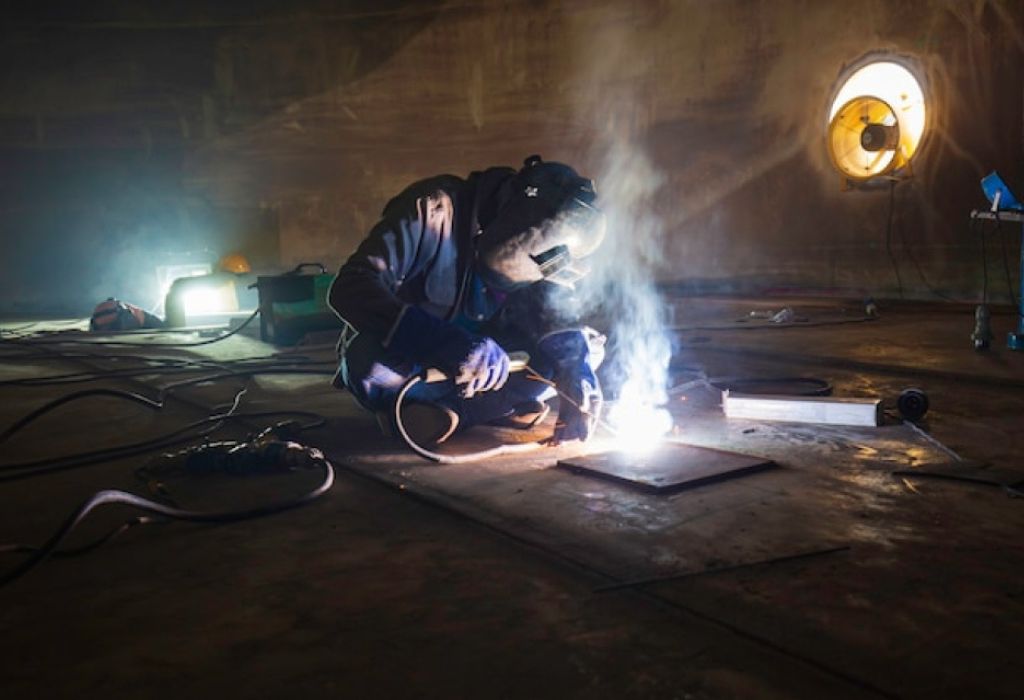
The welding industry is evolving with automation and robotics. Skilled welders are needed to operate and maintain these systems.
There is a shortage of skilled welders in many regions. This increases demand and wages for qualified workers.
Renewable energy projects like wind and solar require welders for infrastructure. Certification is more important than ever as industries seek proven skills.
Is automation reducing welding jobs?
No, it increases demand for skilled operators.
Are welders in demand globally?
Yes, many industries face shortages.
Do renewable projects need welders?
Yes, for pipelines and structures.
Is certification more important now?
Yes, employers prioritize it.
Conclusion
The answer to what do you need to be a welder is a balance of education, skills, certifications, and the right tools. Welders must also commit to safety and precision.
Hands-on training through vocational schools or apprenticeships builds the foundation. Certifications like AWS or ASME open doors to specialized and higher-paying roles.
With global demand rising, welding offers stable careers in multiple industries. Equipped with the right knowledge and tools, you can build a rewarding and lasting future as a welder.

I’m Darrell Julian, the founder, lead writer, and hands-on welding enthusiast behind ArcWeldingPro.com. With more than 15 years of real-world welding experience, I created this platform to share what I’ve learned in the field, in the shop, and in the heat of the arc.

